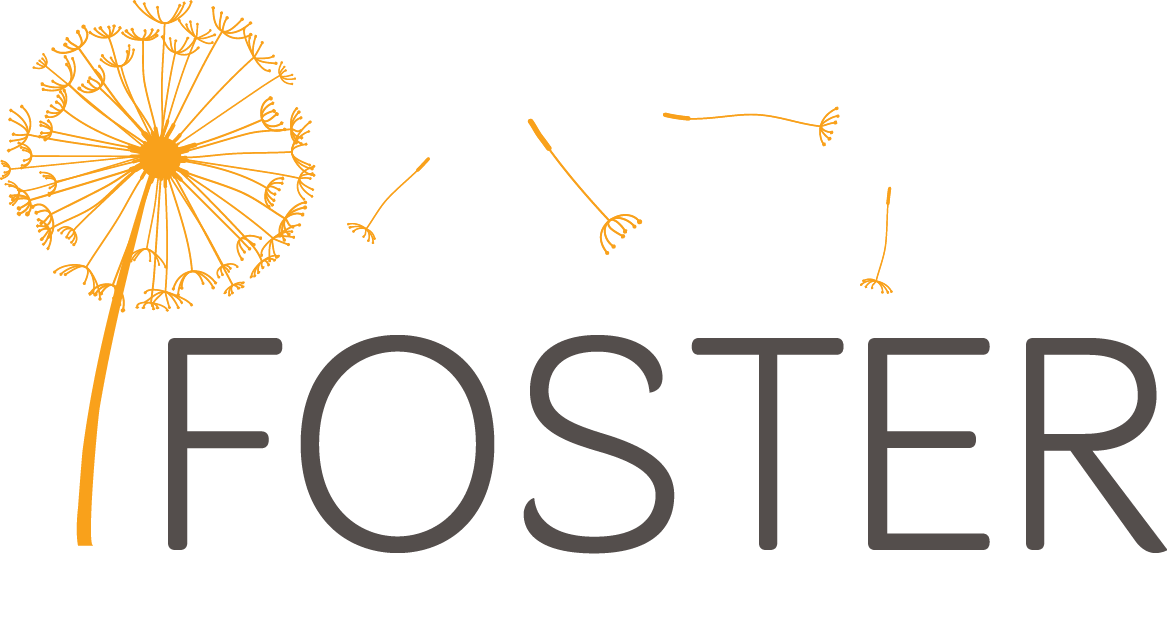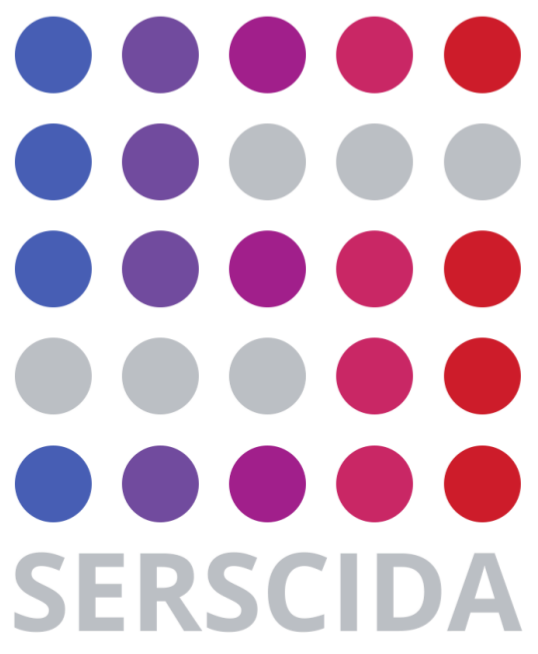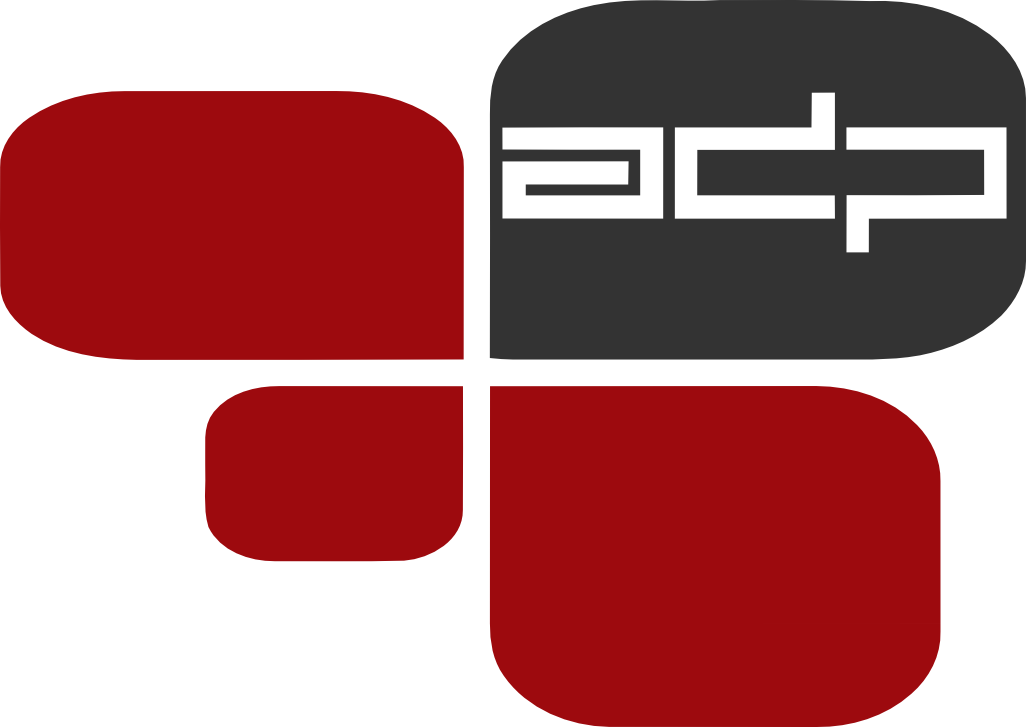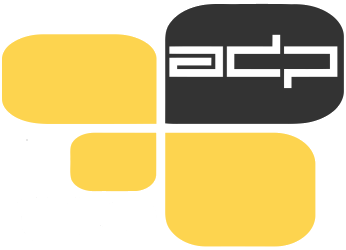Past projects
Datum objave: 08. 04. 2017 Datum zadnjega pregleda: 10. 04. 2018
 |
|---|
EOSC Future is an EU-funded H2020 project that is implementing the European Open Science Cloud (EOSC). This EOSC will give European researchers access to a wide variety of research data and professionally provided services.
Through co-design with scientists and stakeholders, EOSC Future will establish a trusted platform with open and FAIR data, resources and services for all scientific disciplines. The platform will also seamlessly integrate existing data and services from science communities, research infrastructures and e-infrastructures. Via a single sign-on system, European researchers will thus have access to interoperable resources and support to manage the full lifecycle of their data.
The ADP actively participates in 2 work packages (WPs):
WP6: Integration of Community Services & Products into EOSC.
- T6.2 Integration of EOSC core resources into European research practice
WP9: Skills & Training.
- T9.1: Coordination and leveraging
- T9.2: Training delivery and content co-creation for EOSC
Duration: April 2021 – September 2023
 |
|---|
The project aims to provide a full-fledged cloud-based infrastructure to make data, tools and training available for scholars in the social sciences and humanities (SSH).
The main objectives of the project are:
- to implement the requirements of the European Open Science Cloud (EOSC) in the social and humanities sciences by providing scalable and flexible access to research data and related services adapted to the needs of the SSH community,
- to link existing and new infrastructures in order to promote synergies between disciplines and interdisciplinary cooperation and research,
- to increase the reuse of services and data by promoting the idea of open science and FAIR principles in data management to increase efficiency, facilitate the creation and reuse of research data,
- to establish an appropriate model of SSH management, taking into account the specificities of different subject areas of social sciences and humanities.
An ambitious number of 47 organisations have gathered from all over Europe to collaborate together on SSHOC, coordinated by CESSDA.
The ADP actively participates in 3 work packages (WPs):
- WP 2: Communication and Dissemination,
- WP 3: Lifting Tools to the Cloud,
- WP 6: Fostering Communities and Building Expertise.
Duration January 2019 – April 2022
The project will help social sciences and humanities research in Europe gain visibility, making it more efficient by enabling researchers to discover and reuse social sciences and humanities research without disciplinary and language barriers, thus increasing societal impact.
TRIPLE (Transforming Research Through Innovative Practices for Linked Interdisciplinary Exploration) will develop a full multilingual and multicultural solution for access to SSH resources based on the Isidore search engine, developed by the Centre national de la recherche scientifique (CNRS). Project will also provide innovative tools to support research with visualisation, annotation, trust building system, crowdfunding, social networks and recommender systems. TRIPLE’s platform will be integrated into EOSC marketplace and will enable interdisciplinary research projects and large-scale scientific missions.
ADP actively participates in WP 8: Communication and engagement. Consortium of 18 partners form 12 European countries is coordinated by Centre national de la recherche scientifique.
Duration: October 2019 – March 2023
 |
|---|
The aim of the project is to act as a long-term central contact point between the Research Data Alliance and data practitioners, funding organizations, research agencies and other relevant stakeholders in Slovenia.
Specifically, we deal with challenges of coordinating the infrastructure development based on internationally recognised standards, e.g. CoreTrustSeal (CTS), and of developing scientific journal open data policies as one of the points in the National Action Plan that can impact the rise of a data sharing culture.
Duration: February 2019 – May 2020
Participants: ADP (leader), University of Ljubljana, CLARIN, DARIAH-SI.
The project aims to build on recent developments within the previous projects and to ensure the continuity of CESSDA widening efforts.
Widening European coverage and development of pan-European data services is among the priorities highlighted in the CESSDA strategy. This project builds on previous widening activities. The main aims of this project are to maintain and foster a network of CESSDA Partners, ensure that existing CESSDA support services, tools and knowledge are shared among them, find out about emerging national data archiving activities, and increase CESSDA’s visibility in non-member countries. A widening workshop will be held in 2019 and a CESSDA Helpdesk will be set up.
The CESSDA Helpdesk will take the form of online information and email service which will offer personalised answers to specific questions from aspiring CESSDA service providers. It will also offer a mentorship programme between widening project partners and actively aspiring archives. The CESSDA mentoring programme will be a way to ensure that aspiring service providers stay active during 2019, move towards their goals, and are closely supported and encouraged.
Duration: January – December 2019
Participants: CSDA, FORS, TARKI, ADP, SND.
This project aims to support and provide training to all CESSDA service providers in acquiring and prolonging CoreTrustSeal certification.
A key principle of CESSDA is that service providers must be trusted by each other and by their stakeholders including ministries, universities, national statistical offices, funders and, critically, data depositors and users. The Trust Working Group supports this goal through supporting service providers towards certification against the Trustworthy Digital Repository (TDR) standard selected by CESSDA, the CoreTrustSeal.
The main objectives of this project are to provide assistance and support to CoreTrustSeal certification (including consultancy workshops, reviewing tests) for all service providers as needed and to monitor progress of certification of all service providers. In addition, mappings between CoreTrustSeal and CESSDA Annex II obligations will be maintained. Monitoring, engaging with and reporting on the wider TDR ecosystem including OAIS, nestorSeal and ISO16363 developments will also be carried out. Clear interpretations of the Annex II obligations will be formulated and its obligations, guidance and compliance will be monitored for all service providers.
Duration: January – December 2019
Participants: DANS, UK Data Service, FSD, GESIS, ADP, SND.
The objective of the IT4CAP project is to design solutions for the development, management and use of data, addressing two levels in relation to other projects in the field of data and agriculture: the dedicated exploitation of existing microdata collections and the development of information- technology solutions.
ADP participates in the preparation of the questionnaire and interviews with the database administrators at MKGP, ARSKTRP and UVHVVR. It also participates in the review of databases from a statistical and organizational point of view, providing estimates and recommendations. We also conducted an overview of international examples.
Starting point of the project is growing importance of and need for primary data in the process of European Union’s (EU) Common Agricultural Policy (CAP) implementation in the period 2021-2027 characterised by a turn from compliance towards result based policy.
Duration: November 2018 – October 2020
The scientific objective of this 4-year project is to exploit the synergies among three infrastructures (ESS, SHARE, CESSDA) to their fullest extent and to leverage these synergies to influence the still rather fragmented landscape of smaller infrastructures.
Europe is facing huge socio-economic challenges: an economic crisis with a young generation in search of jobs, population ageing potentially straining inclusion and innovation of our societies, climate change with its pressures to redesign energy, transport and housing patterns, just to name some of the most urgent “Grand Challenges”.
Synergies for Europe's Research Infrastructures in the Social Sciences (SERISS) brings together three research infrastructures in the social sciences: the European Social Survey (ESS), the Survey for Health Ageing and Retirement in Europe (SHARE) and the Consortium of European Social Science Data Archives (CESSDA). Also involved in SERISS are non-ESFRI research infrastructures: Generations and Gender Programme (GGP); European Values Survey (EVS) and the Wage Indicator Survey (WageIndicator.org).
The overarching objective of this project is to support the Union, the European Commission and the Member States to tackle these challenges with a solid base of socioeconomic evidence.
The scientific objective of this project is to exploit the synergies among these three infrastructures to their fullest extent and to leverage these synergies to influence the still rather fragmented landscape of smaller infrastructures.
The Agreement entered into force on 1 July 2015.
The duration of the action will be 48 months.
CESSDA AS, together with some of its members (ADP, CSDA, GESIS, NSD, FORS, UKDA), participates in the following work packages: WP4: Interactive tools for cross-national surveys, WP5: Training and dissemination in WP6: New forms of data - legal, ethical and quality issues.
ADP is included in WP6 - New forms of data – legal, ethical and quality issues that deals with quality, legal and ethical issues related to social sciences data. It actively participates in packages 6.1 Legal and ethical challenges related to the use of social media data and related data and 6.3 Connected curation and quality.
 |
|---|
Fathers and Employers in Action (ODA) project funded by the Norwegian Financial Mechanism Program 2009-2014 was launched in the beginning of 2015. The purpose of the project was to evaluate how men reconcile work and family, with the objective of raising gender equality awareness, promoting equal inclusion of men and women in family life and child care and cooperation in the process of identifying needs and in establishing new strategies among employed fathers, employers and unions.
Project objectives:
- enhanced awareness about gender equality in Slovenia
- defeminisation of work-life balance
- acknowledgement and inclusion of needs diversity in work-life balance
With qualitative and quantitative research and analysis of situation, the project will identify needs and obstacles encountered by employed fathers in work-life balance process, whereby with focus on fathers in leading / managing positions and fathers in precarious employments and in collaboration with working fathers.
From ADP, as part of participating organization UL FSS, Dr. Janez Štebe was participating in designing, collecting, analyzing and preparing online survey data for submission. The project also used data from existing official statistics surveys and international surveys.
Duration: February 2015 - August 2016
Participants: The Peace Institute, UL FSS, The Association of Free Trade Unions of Slovenia, Nicha LLC, and Norwegian partner Reform - resource center for men
This project will develop further the CESSDA Metadata Portfolio version 1 built in the CESSDA Metadata Management (CMM) project from the 2015 Work Plan that ended in April 2017.
CMM2 will make it possible to align optimally with other CESSDA initiatives like the Product and Service Catalogue, OSMH, the Euro Question Bank, as well as the DDI CVG and DDI Moving Forward project.
The CMM Phase 2 tasks are:
- Management and promotion
- Extended Core Metadata Model
- Extended Controlled Vocabularies (CVs)
- Management and Maintenance Plan for the Portfolio (both the Core model and CVs
- User guidelines and best practices
- Impact Analysis
The work will be carried out in co-operation with other relevant WP tasks and CESSDA Working Groups. The new version of the Portfolio will be an extension of Portfolio version 1, and the removal of or major modifications to original elements are unlikely.
It is assumed that once the proposed Phase 2 is complete, the Portfolio will not need major changes or updates for several years after its implementation unless the functional requirements change significantly.
Duration: May 2017 - December 2018
Participants: FSD (vodja), ADP, DDA, GESIS, NSD, SND, UKDS.
The online Expert Tour Guide on Data Management, launched in 2017, will be expanded upon and further content for advanced training and train the trainer events created. A number of workshops and webinars will also take place..
Duration: January - December 2018
Participants: UK-ADP, CSDA, UK Data Service, DANS, FORS, SND, FSD, NSD.
DataverseEU will offer a number of services to data repositories and these will be available via the CESSDA Data Catalogue.
For aspiring and new CESSDA service providers it will be a possibility to get their own online repository up and running. There will also be a multilingual user interface.
During the year 2018, the ADP will work on a standalone installation of Dataverse, which we will offer to our users for self-archiving purposes. The ADP will in these cases provide a basic overview of the content, however the quality of the survey will be ascertained by the users themselves.
Duration: January - December 2018
Participants: DANS, GESIS, ADP, SND, TARKI, AUSSDA.
This project aims to support and provide training to all CESSDA service providers in acquiring and prolonging CoreTrustSeal certification.
It is crucial that all CESSDA service providers are perceived as trusted bodies by universities, national statistical offices, funders, researchers and other relevant stakeholders. A proposal will also be developed for FAIR implementation by CESSDA service providers.
Duration: January 2018 - January 2019
Participants: DANS, UK Data Service, FSD, GESIS, ADP, SND.
The VOICE project is a continuation of the ELSST project, in which social science data archives created and translated the thesaurus of social sciences.
Project aims to define a CESSDA-wide policy regarding creation and maintenance of multilingual content. It will also continue to extend the ELSST Thesaurus core terms, increase the number of languages that core terms are translated into, and provide guidance documentation for Vocabulary Service content translators, amongst other tasks.
The ADP will be involved in editing, disseminating and complementing the translation of vocabulary into the Slovenian language.
Duration: January - December 2018
Participants: UK Data Service (vodja), AUSSDA, SOHDA, CSDA, DDA, FSD, PROGEDO, GESIS, SoDaNet, LIDA, DANS, NSD, ADP, SND, FORS, ISSDA.
The project aims to build on recent developments within the aforementioned projects and ensure the continuity of CESSDA widening efforts.
CESSDA aims to achieve full European coverage. Between 2015 and 2017, widening activities were covered within the CESSDA SaW Horizon 2020 project. Moreover, several CESSDA partners initiated two other widening related projects, SERSCIDA (2012-2014) and SEEDS (2015-2017).
This project aims to build on recent developments within the aforementioned projects and ensure the continuity of CESSDA widening efforts. CESSDA will maintain its network of CESSDA Partners, aspiring non-member service providers from the CESSDA SaW project, and increase its visibility in non-member countries. Two widening workshops will be held in 2018.
Duration: January - December 2018
Participants: CSDA, FORS, ADP, TARKI, DANS, SND.
This project is a Pathfinder Project with the aim of writing a funding proposal for funding to enhance and extend the infrastructure for secure remote access to research data.
The vision is of a secure infrastructure, one worthy of trust by data producers, data users, and the public.To achieve this goal, representatives from several CESSDA and other partners will run a workshop, develop use cases, engage researchers, and submit a funding proposal to the European Open Science Cloud.
Duration: November 2017 - March 2018
Participants: UKDA, GESIS, DANS, FORS and ADP.
Collaborative data management module for comparative social science researchers (2017) |
|---|
The aim of this sub-group is to create a single online module on research data management for researchers that can be used across national borders.
The project will offer 15 hours of online interactive stand-alone content, with additional more advanced materials for use in face-to-face training workshops. Trainers will be provided with exercises, group work and guidelines to use the material for the one-day face-to-face workshop. Participants: DANS, UKDA, FORS, FSD, ADP, SND, PROGEDO, SoDaNet, RODA, UCD.
 |
|---|
The aim of the project was to ensure the long-term retention of data obtained under the RRPP, and to make this data available for secondary use as far as possible.
Most RRPP data has an additional analytical value that could be used by other researchers to address new research issues. The ADP assisted with the data curation phase of the project.
Participants: FORS (lead), Analitika, Centar za društvena istraživanja (BIH), CPC, Centre for Political Change (Kosovo), Institute for Democracy and Mediation (Albania), Institute of Economic Sciences (Serbia).
The objective of the CMM project is to develop a standardized metadata design and practice for CESSDA. The outcome will be Metadata Standards Portfolio that will support resource discovery and question banks. The Portfolio will include a DDI-compliant core metadata model and controlled vocabularies for relevant metadata fields.
The CMM project is part of the CESSDA Work Plan Task program and its objective is to develop a standardized metadata design and practice for CESSDA.
The project plans to develop, promote and implement a standardized metadata design, content and practice for all CESSDA data assets. The result will be the CESSDA Metadata Standards Portfolio Version 1 that will become the standard for all Service Providers within CESSDA. It will encompass support for resource discovery, question banks, preservation and data access and help all Service Providers achieve the Data Seal of Approval (DSA) certification requirements related to metadata issues.
The Portfolio will be built mainly upon the DDI-Lifecycle standard, but it will also include elements from other relevant standards where appropriate. The model will be platform independent and designed in a way that enables the adoption of the Portfolio for past, present, and future CESSDA data assets. The Portfolio will also contain CESSDA Controlled Vocabularies for relevant metadata fields, taking into account and supporting the DDI CVG work. A procedure for extending and updating the Portfolio within CESSDA will be proposed as well.
The project is lead by FSD and the partners are ADP, GESIS, UKDS, DDA, NSD, SND and CASD. The project started in November 2015 and ends in April 2017.
Project Strengthening And Widening The European Infrastructure For Social Science Data Archives has received funding from the European Union’s Horizon 2020 research and innovation programme under grant agreement number. Its aim is to cover all European countries with social science data services, to strengthen the network and to ensure sustainability of its data for the widened network.
The primary ambition of CESSDA SAW is to establish the conditions for, and initiate the movement towards, a seamless social science data archive service for the whole of the European Research Area (ERA), which is capable of supporting the research needs of the next generation of social scientists wherever in Europe they may be, or beyond.
The overarching impact of the project will be to initiate the transformation of the user experience of social science data in the ERA, resulting in a transformation of the evidence and insight available to those tackling the social and economic issues of Europe. The barriers to and the potential value and benefits from membership in CESSDA will be examined in each European country. Furthermore, existing, relevant infrastructures in those countries will also be mapped.Moreover, relevant completed initiatives from past projects will be taking up in this project and used to provide support for achieving membership of the CESSDA research infrastructure (e.g. SERSCIDA, DASISH, DwB).
The widened membership must form a strong network where global best practice is built into the infrastructure of European social science and research. Furthermore, the visibility of the CESSDA research infrastructure and its importance in providing evidence for policymaking will therefore be greatly enhanced.
Project partnes are: CESSDA AS (coordinator), Charles Beagrie Limited, Ethniko Kentro Koinonikon Erevnon, Tarki Alapitvany, Tartu Ulikool, University College Dublin, National University of Ireland, Dublin, Instituto de Ciencias Sociais da Universidade de Lisboa, Sveuciliste U Zagrebu Filozofski Fakultet, Institut Ekonomskih Nauka, Sociologicky Ustav Slovenskej Akademie Vied.
As a member of CESSDA, the ADP cooperates in the CESSDA SaW project.
 |
|---|
The focus of the SEEDS project is on preparing partners institutions to establish new data services in their countries, namely Croatia, Serbia, Montenegro, Kosovo, Albania, and Macedonia.
The SEEDS project (South-Eastern European Data Services) will aim to address the need for new data services in countries where no such infrastructure yet exists. Its primary goal will be to put selected partner research institutions on track to serve as national data services, serving their countries’ research communities by hosting and disseminating large bodies of social science data for secondary analysis. Currently, no national data services exist in most countries of south-eastern Europe, with the notable exceptions of Greece and Romania. SEEDS will be a consortium of interested institutions from south-eastern European countries capable of organizing and running new data services, specifically from the countries of Albania, Croatia, Kosovo, Macedonia, Montenegro, and Serbia (see table of Partners). With viable new data services in these countries, valuable research data will be saved, preserved, and made available for re-use for years to come.
Project is funded under program SCOPES.
 |
|---|
Foster is a two-year project aiming to set in place sustainable mechanisms for EU researchers to FOSTER OPEN SCIENCE in their daily workflow.
Open Access and Open Science principles are an essential part of knowledge creation and sharing. They directly support the researchers need for greater impact, optimum dissemination of research, while also enabling the engagement of citizen scientists and society at large on societal challenges.
This two-year project aims to set in place sustainable mechanisms for EU researchers to FOSTER OPEN SCIENCE in their daily workflow, thus supporting researchers optimizing their research visibility and impact, the adoption of EU open access policies in line with the EU objectives on Responsible Research & Innovation.
Data without Boundaries (DwB) is an international EC FP7 project, whose aim is to support equal and easy access to official microdata for researchers, both on the national as well as the international level.
Slovenian Social Science Data Archives (ADP) were participants in the international Data without Boundaries project (DwB), funded by the European Commission (FP7). The main goal of the project was to support equal and easy national and international access to official microdata for the European Research Area. To achieve that, a harmonized infrastructure data access model was developed, irrespective of national boundaries, yet flexible enough to fit national arrangements and support international cooperation. The emphasis of the project was to manage the across-the-border access to detailed non-anonymised microdata. European Commission assessed that official statistics microdata are under-used for scientific or academic research. The reasons for that, which partners of the project have to overcome together, are national, technical, cultural and legislation barriers.
The project included 12 work packages and was a cooperation of 29 organizations - CESSDA social science data archives, national statistics offices (in cooperation with EUROSTAT), research centers and universities. One of the common goals was to establish a web portal which would include the most important information on the access to microdata in separate European countries. It also includes a wide spectrum of research metadata. Social Science Data Archives were one of the partners of DwB project, actively participating in the Work Package nr. 5 (WP5). One of the goals of WP5 is to prepare a list of available European official statistics microdata and associated metadata. Statistical Office of the Republic of Slovenia (SORS) was also a partner of DwB project, participating in Work Packages 3, 6 and 11. As both Slovenian partners are aware of the advantages of cooperation between a governmental organization and an academic organization in this specific field, SORS and ADP decided to increase the cooperation to achieve goals of the DwB project more effectively. The main result of the cooperation should be a more frequent and easier access of researchers to official statistics microdata in Slovenia.
As a part of the project, different events, such as conferences and workshops were organized. Researchers could have also applied for the access to the detailed official statistics microdata in other countries by responding to calls for microdata access. That way this valuable data source could easier be used for more serious research purposes in accordance to the goals of the project.
 |
|---|
SERSCIDA is designed as a strategic project for supporting the cooperation and exchange of knowledge between the EU countries associated within the Council of European Social Sciences Data Archives (CESSDA) and the Western Balkan Countries (WBC) in the field of social science data archiving.
Support for Establishment of National/Regional Social Science Data Archives (SERSCIDA )is designed as a strategic project for supporting the cooperation and exchange of knowledge between the EU countries associated with the Council of European Social Sciences Data Archives (CESSDA) and the Western Balkan Countries (WBC) in the field of social science data archiving. The project addresses the issues of potentials of usage of information-communication technologies for the benefits of scientific research and exchange of knowledge as laid down in the call for proposals topic. The project aims to produce tangible results and improve the capacities for the exchange of knowledge and data collected through research in social sciences between the European countries and WBC involved.
 |
|---|
The aim of the Open data project is an action plan for policy-making in the management of research data, funded by public money.
Arhiv družboslovnih podatkov (ADP) na Fakulteti za družbene vede, Univerza v Ljubljani, v okviru razpisa za CRP v letih 2010-13 po naročilu Ministrstva za visoko šolstvo, znanost in tehnologijo (MVZT) izvaja projekt »Odprti podatki – Priprava akcijskega načrta za vzpostavitev sistema odprtega dostopa do podatkov iz javno financiranih raziskav v Sloveniji«
Odprt dostop do raziskovalnih podatkov je aktualen zaradi možnosti, ki jih ponujajo sodobne digitalne tehnologije in omrežja. Kot je navedeno v »Načelih in usmeritvah OECD za dostop do javno financiranih raziskovalnih podatkov« (v nadaljevanju »Načela OECD«), bolj odprt dostop do podatkov povečuje raznolikost analiz in presoj, spodbuja nova raziskovanja, omogoča preizkušanje novih ali alternativnih hipotez in metod raziskovanja, proučevanje metod zbiranja podatkov in meritev, spodbuja izobraževanje novih raziskovalcev, omogoča raziskovanje prvotno nepredvidenih tem ter oblikovanje novih podatkovnih serij s kombiniranjem podatkov iz več virov.
K izpolnjevanju Načel OECD, ki predstavljajo izhodišče projekta, se je zavezala tudi Slovenija z nedavno včlanitvijo v OECD. Odprt dostop do podatkov po Načelih OECD pomeni preglednost nad viri raziskovalnih podatkov, ki so nastali v skladu z uveljavljenimi znanstvenimi merili kakovosti in uporabnosti za nadaljnje analize. Raziskovalne podatke je potrebno urediti in opremiti z vsemi potrebnimi dodatnimi informacijami (metapodatki), ki opredeljujejo avtorske, patentne, metodološke in vsebinske podrobnosti o nastanku podatkovnega vira in možnostih nadaljnje uporabe. Odstranjene ovire pri dostopu do podatkov bodo torej zagotovile njihovo širšo uporabo, s tem pa se bo izboljšala znanstvena odličnost in uporabnost rezultatov
Tu se nahajajo javni dokumenti, ki so nastali v okviru projekta ali so kako drugače povezani s projektom.
- Zaključno poročilo projekta
- Osnutek akcijskega načrta
- Osnutek politik ravnanja z raziskovalnimi podatki financiranimi z javnimi sredstvi [docx]
- Poročilo z delavnice Napredne tehnologije za vzpostavitev raziskovalne podatkovne infrastrukture v Sloveniji [PDF]
- Poročilo z delavnice Napredne tehnologije za vzpostavitev raziskovalne podatkovne infrastrukture v Sloveniji [DOCX]
- Poročilo z delavnice Politike ravnanja z raziskovalnimi podatki financiranimi z javnimi sredstvi [PDF]
- Poročilo z delavnice Politike ravnanja z raziskovalnimi podatki financiranimi z javnimi sredstvi [DOCX]
- Poročilo z delavnice Problemi in rešitve na področju podatkovnih storitev v Sloveniji [PDF]
- Poročilo z delavnice Problemi in rešitve na področju podatkovnih storitev v Sloveniji [DOCX]
- Priporočila udeležencev delavnice Problemi in rešitve na področju podatkovnih storitev v Sloveniji, Fakulteta za družbene vede, 5. 12. 2012 [PDF]
- Recommendations of the participants of the workshop Challenges and Solutions in Data Services in Slovenia, Faculty of Social Sciences, Ljubljana, 5th December 2012 [English PDF]
- Poročilo projekta Odprti podatki Opis stanja na področju raziskovalnih podatkov v Sloveniji
- CRP predstavitev, NIB (21.3.2011)
- Odprti podatki – letak
- Predstavitev projekta, sestanek s prestavniki inštitucij (19.1.2011) – Predstavitev 1
- Predstavitev projekta, sestanek s prestavniki inštitucij (19.1.2011) – Predstavitev 2
- Predstavitev projekta, sestanek s prestavniki inštitucij (19.1.2011) – Predstavitev 3
- Priporočilno pismo MVZT
Kako citiram to stran?
Arhiv družboslovnih podatkov. LETO. Past projects. Dostopano prek: http://adp.fdv.uni-lj.si/eng/spoznaj/projekti/pretekli/ (DD. mesec leto).
AKTUALNI DOGODKI
4. april 2024
Spletni seminar SPOZNAJ: Podatkovne objave v odprti znanosti
14. marec 2024
Predstavitev novega učbenika: Odprta učna gradiva z uporabo odprtih raziskovalnih podatkov
NOVICE
Raziskave o Covid-19 iz kataloga CESSDA vključene v Podatkovni portal COVID-19
Projekt SPOZNAJ
V ADP HRANIMO TUDI
Politbarometer 09/12, Slovenija, September 2012, CJM
ZADNJE OBJAVLJENE RAZISKAVE
AKTIVNOSTI ADP
Spletni seminar SPOZNAJ: Podatkovne objave v odprti znanosti
Predstavitev novega učbenika: Odprta učna gradiva z uporabo odprtih raziskovalnih podatkov
KONFERENCE IN DOGODKI
Spletni seminar: Lessons from Covid-19 data
Projekt OSCARS: objavljen javni razpis za prijavo projektov ali storitev odprte znanosti




